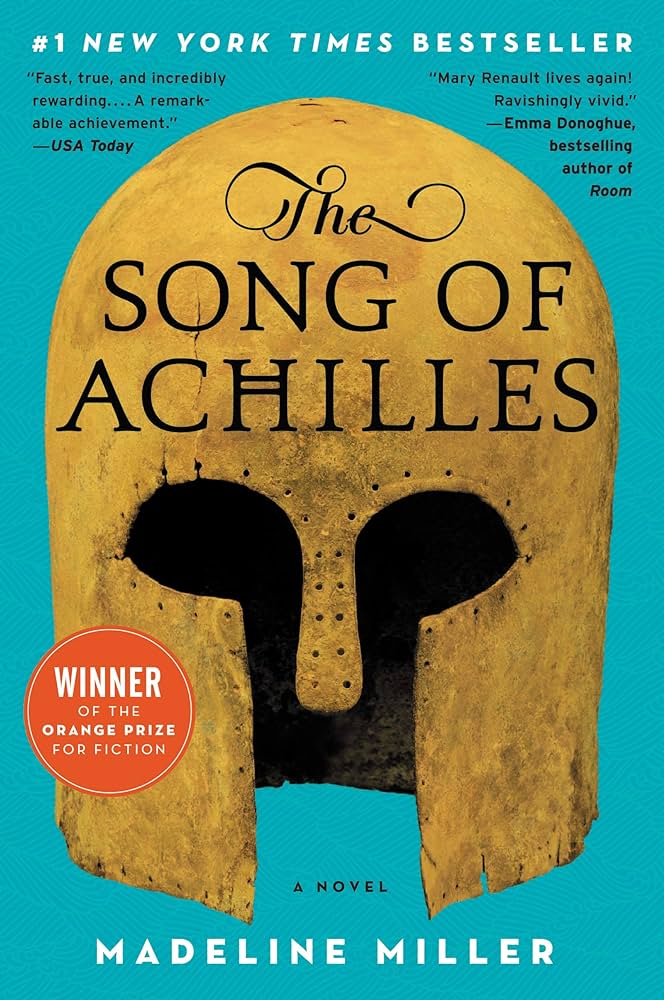Madeline Miller’s The Song of Achilles is a profound and evocative retelling of the Iliad that reimagines the life and love of Achilles through the lens of his companion and lover, Patroclus. This novel stands out not only for its narrative depth but also for its nuanced portrayal of a same-sex relationship in a historical and mythological context. Miller’s reimagining provides both a respectful representation of queer love and a fresh perspective on one of literature’s most storied pairings.
At its heart, The Song of Achilles is a love story. Miller’s depiction of Achilles and Patroclus’ relationship is tender, passionate, and profoundly human. Unlike many traditional portrayals that focus predominantly on Achilles’ heroism and military prowess, Miller shifts the focus to the personal and emotional dimensions of their bond. The novel’s exploration of their romantic relationship is both groundbreaking and deeply moving. Miller presents their love with sensitivity and authenticity, navigating the complexities of their feelings and the societal expectations of their time. This portrayal is both refreshing and necessary, offering readers a glimpse into a queer relationship that is as heroic and heartfelt as the epic battles depicted in the original myth.

The accuracy of Miller’s adaptation to the source material is another notable aspect of the book. Her deep understanding of Greek mythology is evident throughout the narrative. She deftly weaves the mythological elements into the story, enriching the text with references to the gods, prophecies, and legendary events from the Iliad. Miller’s ability to maintain the integrity of the myth while crafting a narrative that is both accessible and engaging is a testament to her skill as a writer. The novel succeeds in capturing the grandeur and tragedy of the ancient Greek world, making the mythology come alive for contemporary readers.
Miller’s writing style is a significant strength of the novel. Her prose is lyrical and evocative, imbued with a poetic quality that enhances the emotional impact of the story. The descriptive passages are vivid and immersive, drawing readers into the ancient world with rich, sensory details. This attention to language not only brings the settings and characters to life but also deepens the emotional resonance of the narrative. Miller’s ability to convey complex emotions through her writing allows readers to experience the highs and lows of the characters’ journey in a deeply personal way.
However, while the novel’s emotional depth and lyrical prose are commendable, there are areas where it may fall short. The intense focus on the romantic relationship between Achilles and Patroclus, while compelling, sometimes overshadows other elements of the mythological narrative. The emotional weight of their love story occasionally comes at the expense of broader character development and plot intricacies. Some readers may find that the novel’s emphasis on their relationship limits the exploration of other characters and themes that are integral to the original myth. Additionally, the novel’s pacing, particularly in the latter half, can feel uneven, as the narrative shifts from the personal to the epic with varying degrees of fluidity.
Despite these criticisms, The Song of Achilles remains a powerful and evocative work. Its portrayal of a same-sex relationship in a historical and mythological context is both groundbreaking and deeply affecting. Miller’s writing captures the essence of ancient Greece while offering a modern perspective on timeless themes of love, heroism, and destiny. The novel’s emotional impact and lyrical beauty make it a noteworthy addition to the canon of mythological retellings.
In conclusion, Madeline Miller’s The Song of Achilles is a masterful reimagining of one of literature’s most enduring myths. It combines a respectful and nuanced portrayal of queer love with a faithful adaptation of Greek mythology, all conveyed through evocative and lyrical prose. While it may have some limitations in terms of character development and pacing, its strengths far outweigh these minor flaws. The novel’s ability to blend mythological grandeur with intimate emotional depth makes it a compelling read and a significant contribution to the genre of mythological fiction.